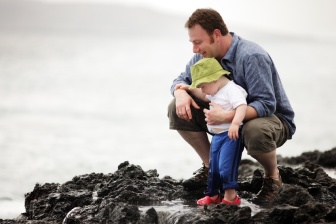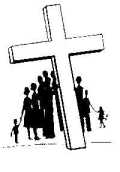
THE SERENITY PRAYER
By Reinhold Niebuhr
God, grant me the serenity
to accept the things I cannot change,
the courage to change the things I can,
and the wisdom to know the difference.
Living one day at a time,
enjoying one moment at a time;
accepting hardship as a pathway to peace;
taking, as Jesus did,
this sinful world as it is,
not as I would have it,
trusting that You will make all things right
if I surrender to Your will,
so that I may be reasonably happy in this life
and supremely happy with You forever in the next,
Amen
Over the past several months I have been helping a local congregation begin a Celebrate Recovery program. Broader in scope than the normal 12-step programs of Alcoholics Anonymous, the purpose of the program is to help people find healing for their ‘hurts, habits and hangups” with a clear emphasis upon identifying the “Higher Power” as Jesus Christ. The teaching is further based upon fleshing out “The Eight Principles” of the beatitudes in Matthew 5.
Every week the group recites the Serenity Prayer which is such a powerful tool for helping us focus upon discerning between the “things I cannot change,” asking for the courage to change the things that I can. Indeed, a key to coping with the challenges of life is developing the wisdom to distinguish one from the other.
So much of our dysfunctional coping skills emanate from trying to manage or control things that are outside of our “sphere of influence”, as Steven Covey distinguished it in his book 7 Habits of Highly Effective People. It is so easy to desire the best for others. It is quite another thing to take responsibility for their ability to change in line with our desires.
What makes this especially difficult is when the people for whom we desire only the best begin to make choices that lead in a direction other than where we think they should go (key word: should). So, out of our frustration we are tempted to use every tool in the shed to attempt to force them to make better choices. Within reason, these are the last-ditch attempts to help someone alter their course, do a U-turn or to come around 180 degrees. As loving, caring people, we must use these tools, fully aware that the person we are trying to influence is likely to reject them. There is some value in knowing that we gave it our best shot against the odds.
But then there comes a line that is easy to cross if we are not careful. We find ourselves lying awake all night worrying about their problems, their decisions, their choices. If we are not careful, we risk losing our selves as we invest in their problems and begin to neglect our own needs. Better to help someone from a position of strength than to become so immersed with their problems that everyone loses. Someone has to stay strong in order to be available when it is necessary to rescue….
Mistakes in life are tremendous learning opportunities that usually involve some degree of pain and suffering. “Wisdom to know the difference” may mean watching a loved one suffer the consequences of choices they have made and being clear about what you can and cannot do to help.
Of course, the goal is to allow them the opportunity to benefit from the experience.
What often keeps us engaged is the fear we have when we consider the potential severity of the consequences.

 The Double Bind is defined as “…a psychological predicament in which a person receives from a single source conflicting messages that allow no appropriate response to be made” (
The Double Bind is defined as “…a psychological predicament in which a person receives from a single source conflicting messages that allow no appropriate response to be made” ( Parenting is tough. While children go through their developmental changes, each with their own unique personalities and temperaments, parents must morph their parenting tools to adapt and change. Not only must the techniques and tools change with developmental stages but, at the same time, they must further adapt to the uniqueness of each child. I sometimes wonder who must change the most during these transitions: the child or the parent!?
Parenting is tough. While children go through their developmental changes, each with their own unique personalities and temperaments, parents must morph their parenting tools to adapt and change. Not only must the techniques and tools change with developmental stages but, at the same time, they must further adapt to the uniqueness of each child. I sometimes wonder who must change the most during these transitions: the child or the parent!?